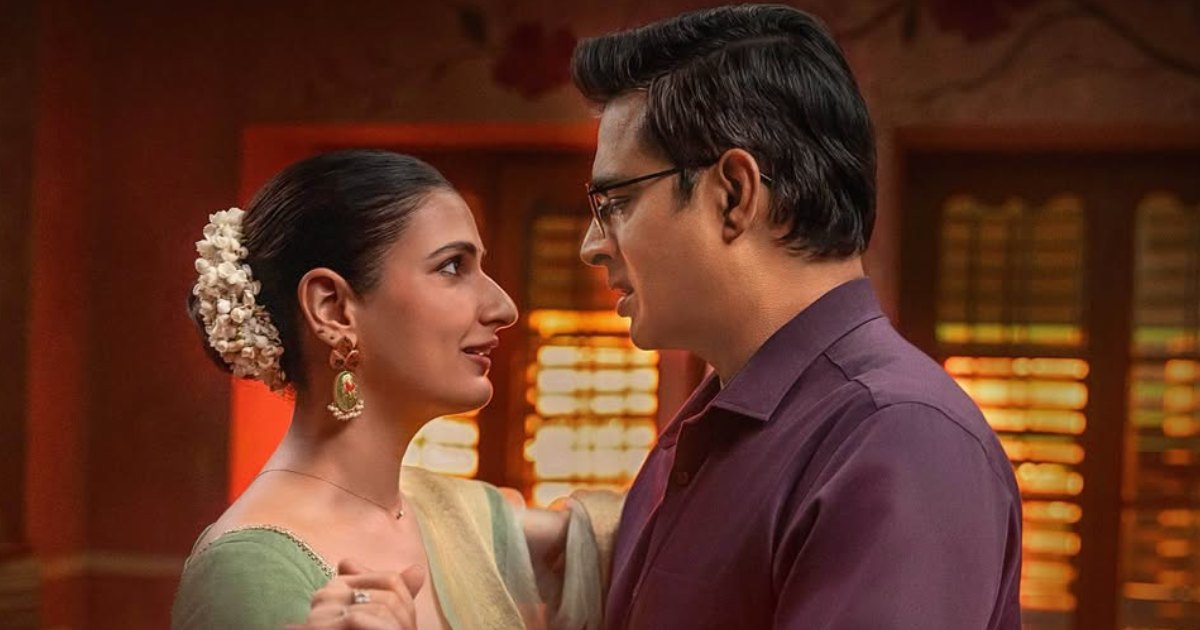Aap Jaisa Koi on Netflix sets out to be bold, tackling themes of feminism and identity and equal love, but never quite commits. As Kausalya Rachavelpula observes, it touches on progressive ideas, yet plays it safe in a familiar space, delivering surface-level empowerment wrapped in glossy packaging.
It attempts to be progressive, but the effort feels half-hearted. While the movie tries to take a stand, it seems unsure and timid about where it actually stands, resulting in a diluted, surface-level narrative.
One of the biggest drawbacks is the portrayal of the female lead, Madhu, played by Fatima Sana Shaikh. The film claims to be rooted in feminist ideals—equal rights, freedom of choice, and agency—but falls short in execution. Her glamorised Indian outfits often appear designed more for the male gaze than to express individuality or empowerment. Take Piku, for example: Deepika Padukone plays a similarly independent and empowered Bengali woman. She dresses appropriately for occasions but still feels authentic, real, and grounded. In Aap Jaisa Koi, the styling and behaviour lean more toward a Karan Johar movie heroine than the nuanced character the story promises. Isn’t that the very stereotype the movie aims to question?
When Madhu meets her potential suitor, Shrirenu, played by Madhavan, for the first time, she immediately offers to quit her high-paying job and move cities for him—just because “things might work out.” How does that make her any different from women who conform under patriarchal pressure?
The film critiques how women are viewed in traditional families, but during the big reveal, the burden still falls on the women to justify their choices. Instead of standing firm, the movie pleads with the audience to reconsider these issues, making the message feel hesitant rather than assertive.
Even the “how” of Madhu falling in love with Shrirenu feels unconvincing, especially for the strong woman the film wants her to be. The entire film tries to appear in line with feminist ideals but includes minimal actual feminism—more as a trend than a conviction.
What’s missing is conviction. A story that takes a stand should reflect that through its scenes and character arcs—not just through on-the-nose dialogues. The male lead’s sudden change of heart is abrupt and unexplained, weakening the emotional payoff. Too many incomplete plotlines make the film feel disconnected from its Indian setting, raising questions and leaving a sense of incompleteness.
Aap Jaisa Koi doesn’t need to be loud, but it does need to be visually and emotionally resonant. Sadly, that’s where it falls short.
The love track between Madhu and Shri has a nostalgic, old-world charm, and the music works well in those parts. Perhaps the film is trying to emulate that vintage tone overall—but in doing so, it ends up feeling outdated in all the wrong ways.
Review: 2/5

Aap Jaisa Koi
















